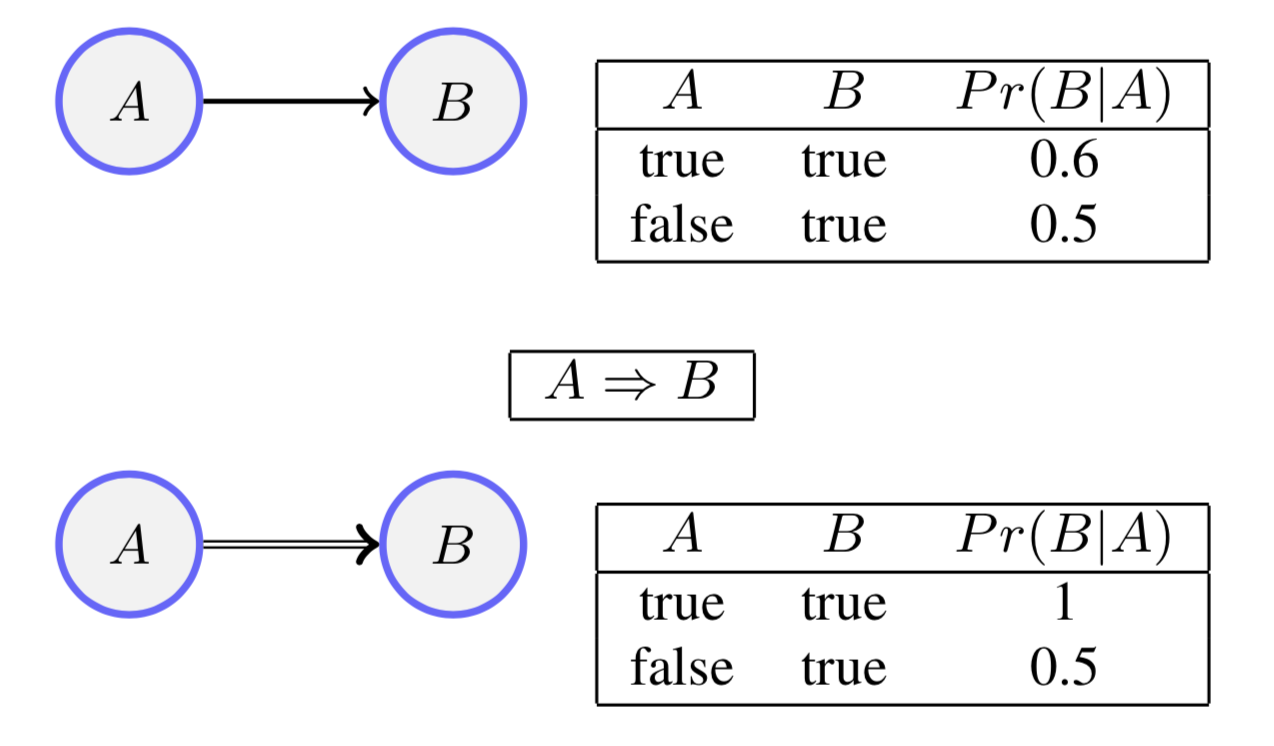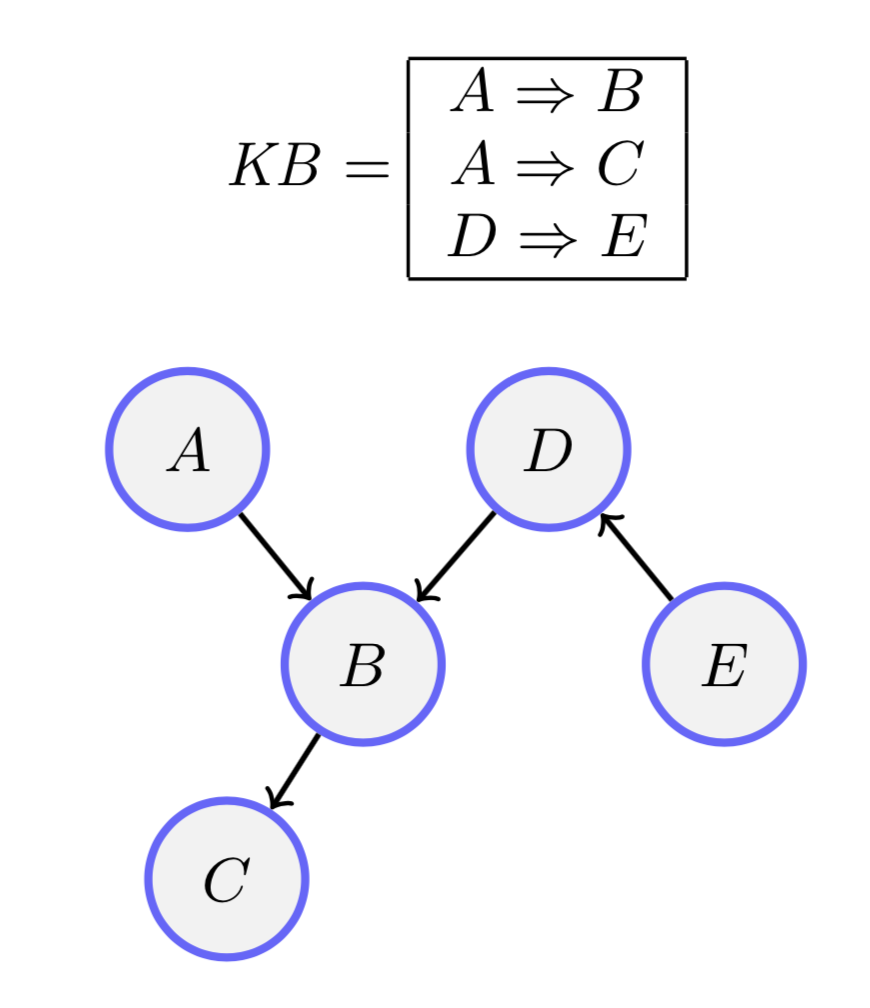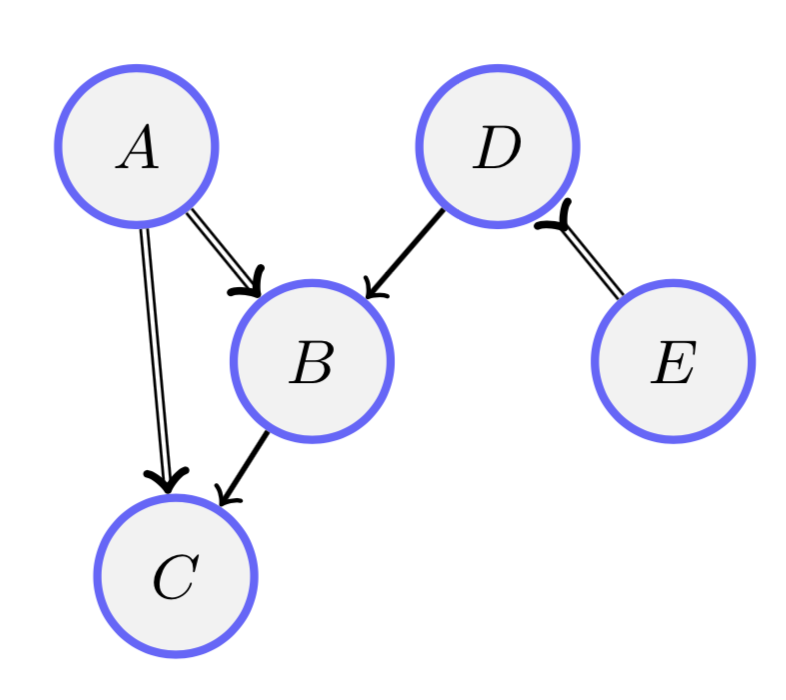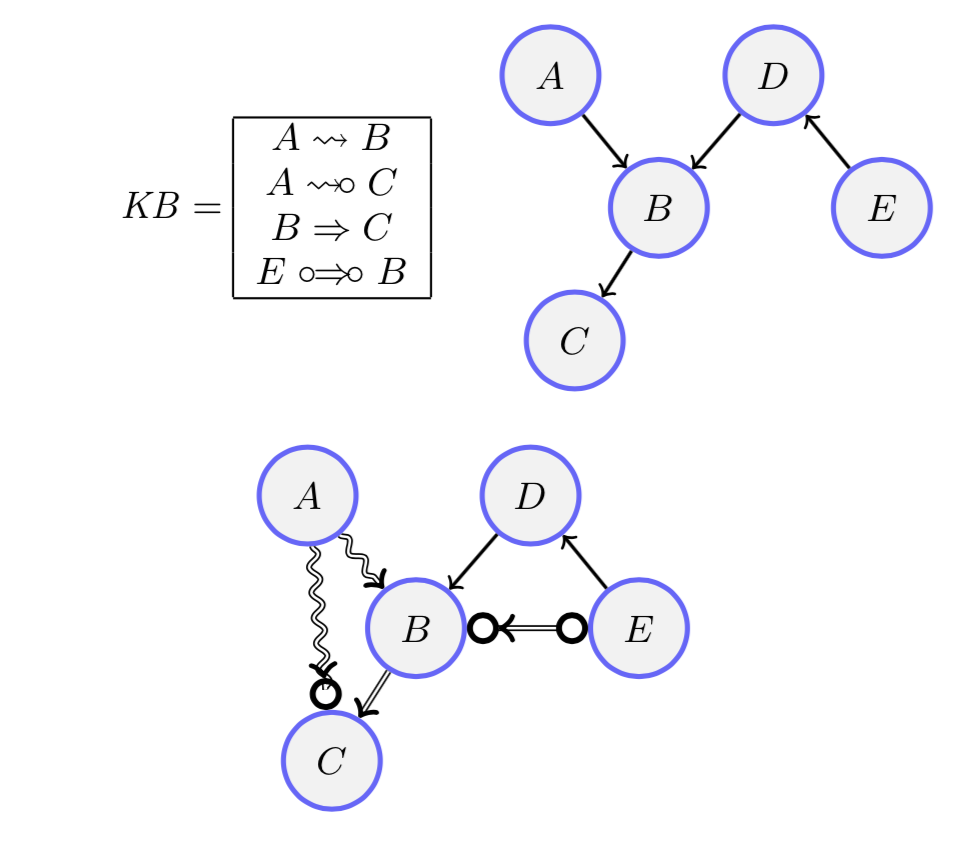
Figure 1: An implication, A => B, being applied to an influence of A->B.
An Implicative Bayesian Network is a mathematical model used to reason with probabilistic systems which contain logical relationships between system events.
While both logical and Bayesian Network systems provide a powerful tool to visualise and reason with knowledge, the union of these two systems could result in a construction that is able to more accurately model real-world situations. The Implicative Bayesian Network (IBN) is a new mathematical model which combines the reasoning systems of propositional logic and Bayesian Networks to create a more expressive reasoning model. This is done by defining what implication means within a Bayesian Network system, and using this definition to create a new Bayesian Network which conforms to logical rules specified within a logical knowledge base. The definition of implication is then extended to include the negation of events, allowing for different transformations to the probability tables of a Bayesian Network in an IBN. This extended defintion is then used to create a defeasible IBN structure, which is able to perform non-monotonic reasoning with probabilistic information.
In creating the IBN model, the project aims to develop a construction which is a more expressive reasoning system than a Bayesian Network or logical knowledge base. The model should also able to take advantage of the existing efficient algorithms used to query such strcutures, while minimising overhead in calculating these queries.
In the successful construction of the Implicative Bayesian Network, the new model is shown to be both sound and complete, and able to reason with a system of knowledge which contains both logical and proabilistic information. Furthermore, as the model provides a thorough visualisation mechanism, it is a suitable basis for a langauge of knowledge representation. In extending the model with defeasibilty, and consequently negation, the resulting construction is also shown to be sound and complete with an apt visualisation mechanism. In conclusion, the Implicative Bayesian Network is a new construction that succesfully combines the reasoning mechanisms of propositional logic and Bayesian Networks to create a more expressive structure. Hence the IBN construction provides a new and intuitive way to model intelligent systems without a significant compromise in performance.

Figure 1: An implication, A => B, being applied to an influence of A->B.

Figure 2: The graph and logical knowledge base of a bottom Bayesian Network.

Figure 3: The graph of a top Bayesian Network created from the bottom network in Figure 2 , A => B.

Figure 4: The graph and logical knowledge base of the bottom Bayesian Network associated with a defeasible IBN (top figure), and the resulting graph of the top Bayesian Network (bottom figure).
In this paper a model is proposed that combines Bayesian Networks and Propositional Logic, called an Implicative Bayesian Network (IBN). The goal of the project was to create a more expressive way to represent inferential systems, while maintaining the ability to use the well-established algorithms synonymous with both classical reasoning and Bayesian reasoning. The model was then extended with defeasible structures, which allows the model to perform non-monotonic reasoning. This paper also provides background information in the relevant fields, including an overview of logical implication and entailment in propositional logic, non-monotonic reasoning and Bayesian Networks. The paper then describes how to integrate propositional logic into a Bayesian Network, and includes new definitions, proofs, descriptions of the various relationships and properties that exist in an IBN, as well as the algorithm to transform a Bayesian Network into an IBN via a propositional logic knowledge base. To extend the IBN model to be able to perform non-monotonic reasoning, details are outlined about how the model should transform in structure. Descriptions of the new formalisms and procedures required for the extension are also provided. It is identified that further research into the properties of the construction could improve the model and its versatility. In conclusion, the basis for the model is sound, and provides a new and intuitive way to model intelligent systems.
IBNs were researched by Elijah Roussos as part of a major project undertaken in his Honours year at the University of Cape Town, South Africa. The project was split into two sections - the theory and implementation of Implicative Bayesian Networks. The development of the theory which forms the basis for IBN models makes up the theoretical component of the project. A literature review investigating the intersection between logic and Bayesian Network was completed, as well as a final paper detailing the theory behind the new IBN model. These deliverables can be found below.
Download the literature review Download the final paper